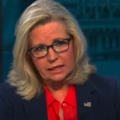The release of Hunter Biden’s deposition transcript by the House Committee on Oversight and Accountability and the House Committee on the Judiciary has reignited discussions about influence peddling and the ethical boundaries of political family engagements. Let’s dive into the substance of Hunter Biden’s testimony, examining the facts and implications of his statements within a framework that raises serious questions about honesty and accountability.
The Inescapable Shadow of Influence
At the heart of Hunter Biden’s testimony lies a convoluted narrative of business dealings, international engagements, and the inevitable intertwining of his private ventures with the public persona of his father, Joe Biden. Despite attempts to portray his business activities as independent, the details emerging from the deposition suggest a different reality. Hunter Biden’s associations with Ukrainian energy company Burisma Holdings and various Chinese entities not only highlight a pattern of leveraging familial connections but also raise red flags about potential conflicts of interest.
The Burisma Connection: More Than Meets the Eye
Hunter Biden’s role on the board of Burisma Holdings, a Ukrainian energy company, has long been a focal point of controversy. Critics argue that his position, which came with a substantial financial compensation, was less about his expertise in the energy sector and more about his value as the son of then-Vice President Joe Biden. The deposition sheds light on this arrangement, highlighting how Hunter Biden’s association with Burisma was perceived as a direct line to American political influence.
China Deals: A Web of Intrigue
The deposition transcript further reveals Hunter Biden’s dealings with Chinese businesses, where his roles and investments have been scrutinized for potential undue influence. These transactions, often shrouded in complexity, underscore the challenges in distinguishing between legitimate business ventures and those that may serve as conduits for political leverage. The testimony attempts to navigate these murky waters, yet questions remain regarding the depth of Hunter Biden’s Chinese engagements and their implications for U.S. policy and interests.
Deflecting Responsibility and the Quest for Transparency
Throughout his testimony, Hunter Biden appeared to deflect responsibility and minimize the significance of his actions. His narrative often shifts focus away from the core issue of influence peddling, framing his business decisions as unrelated to his father’s political career. However, the evidence and patterns outlined in the deposition suggest a calculated use of the Biden name to advance personal and financial interests.
Final Thoughts
Hunter Biden’s deposition testimony, as released by the House Oversight and Judiciary Committees, paints a picture of a man deeply entangled in the world of international business, where the lines between personal gain and political influence are blurred. Despite attempts to present these dealings as standard business practices, the facts laid bare in the transcript suggest a deliberate strategy to capitalize on the Biden family name.
This narrative is not merely about the ethical lapses of one individual but signals a broader concern about accountability and integrity in the corridors of power. As the debate continues, it’s imperative to question the standards to which we hold our public figures and their kin. The testimony of Hunter Biden serves as a stark reminder of the enduring influence of political dynasties and the complex interplay between personal ambitions and public service.
Having trouble? If your comment doesn’t post, submit another comment right after it that says: Jimmy, please approve my comment that didn’t post.














The whole clan should be locked up except for the unwanted grand child!